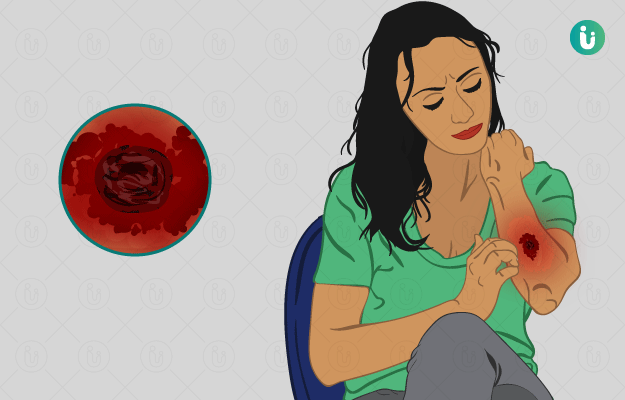What is skin cancer?
Skin cancer is one of the most common types of cancer. It is a condition caused due to the development of abnormal cells in the skin which has the ability to spread throughout the body. Skin cancer is also the most effectively treatable kind of cancer if diagnosed in time.
What are its main signs and symptoms?
Skin cancer can be divided into three divisions, each having a slightly different set of signs and symptoms. The three kinds of skin cancer and their symptoms and signs are:
- Basal cell skin cancer – The most common type of skin cancer, which usually appears as small shiny or white lumps with a translucent appearance.
- Squamous cell skin cancer – Appears as a pink lump with a rough surface.
- Melanoma – Appears as black spots or lumps on the surface of the skin.
These lumps and rashes are persistent and grow throughout the surface of the body over time.
What are its main causes?
The primary cause of the development of skin cancer is overexposure to ultraviolet radiation from the sun.
Skin cancer is more prominent in people with a weak immune system and those who have light or fair skin, which is due to the lack of melanin formation in the skin cells.
Other causes which can lead to the development of skin cancer are listed as follows:
- Having large number of moles
- Having been previously diagnosed with skin cancer
- Freckled skin
How is it diagnosed and treated?
Skin cancer is usually diagnosed by a general physician or a dermatologist.
Biopsy is the most common test done to confirm the diagnosis if the patient is showing signs of skin cancer. In case of basal cell skin cancer, no further tests are required as they do not spread, however, in other two forms of skin cancer, further tests are required to determine the spread of the disease. These tests include a Fine Needle Aspiration (FNA) performed on the lymph nodes to check the spread of cancer.
Treatment of skin cancer involves non-surgical methods for non-melanoma skin cancer. This includes cryotherapy,anti-cancer creams, photodynamic therapy, or guided radiotherapy.
In case of melanoma skin cancer, staged treatments are similar to non-melanoma skin cancer, however, at an advanced stage of melanoma skin cancer, surgery is required to remove the infected skin tissues with new grafts.

 Doctors for Skin Cancer (Melanoma)
Doctors for Skin Cancer (Melanoma)  OTC Medicines for Skin Cancer (Melanoma)
OTC Medicines for Skin Cancer (Melanoma)



















